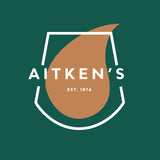| Grape | Cabernet Sauvignon, Cinsault, Carignan, Red Blend |
| Style | Dry, Red, Full Bodied, Rich, Soft, Red Fruit, Spice |
| Country | Bekaa Valley |
| Region | Lebanon |
| Volume | 75cl |
| ABV | 14% |
| Dietary | Vegetarian, Vegan |
The Chateau Musar 2017 vintage has fulfilled its promise, indeed the wines of this year are unique, while retaining classical Chateau Musar character. Three factors come to mind, the similarity in style of the different decades ending in 7, the taste of the last vineyard of Cabernet Sauvignon harvested and powerful aromas. It has a bright ruby colour and there are sweet red cherries, mulberries and plums on the nose with a hint of tea tree and liquorice. The tannins are soft and well-integrated and this vintage has good acidity, depth of fruit and a long finish. Cellared well, it will age beautifully for decades.
About the Producer
The wines of Chateau Musar are unique expressions from a country with an ancient wine-making culture. Vines have been cultivated in Lebanon's high altitude Bekaa Valley for over 6,000 years.
From around 4,500 BC, the sea-faring Phoenicians (ancestors of the modern Lebanese) distributed their wines and vines throughout the Mediterranean, travelling as far as Cadiz (and possibly beyond) in their robust cedar boats. Their resilience in the face of repeated invasion gave rise to the legend of 'The Phoenix.
They also invented the alphabet to help keep records of their various transactions.
The ancient city of Baalbek in the northern Bekaa Valley, takes its name from the Phoenician fertility god, Baal. The Roman god Bacchus was in turn worshipped here and the temples built in his honour remain among the most perfectly preserved in the world. The region's wines are mentioned many times in the bible, with the first recorded evidence of wine transactions coming from Byblos (book in Greek, hence 'Bible') an historic fishing port north of Beirut.
French in origin, the Hochar (pronounced Hoshar) family arrived in Lebanon in the 12th century and have remained there ever since.
To get an idea of the history and struggle that makes Chateau Musar such an icon of the wine world please click this link to visit the Chateau Musar website
Vineyard and Winery
The year began with high hopes after experiencing above average rain and snowfall in January, leading to expectations that the water table would be replenished. More rain and snow followed in February and non-stop in March but turned into a mild spring with temperatures rising in April, though not excessively. In fact, opening of buds on the vines was 10 days later than usual due to low air temperatures and comparatively cold soils. In late April a one day frost hit the Bekaa Valley but at the time was not seen as particularly harmful. They were only to learn of the effects of that day at harvest time when it transpired that the vines pruned in early winter had indeed suffered, though Cinsault proved the most resistant. On the 24th June, the temperature reached 37 degrees and this heat continued until mid-August affecting the vines and grapes resulting in lower yields. Harvest started with the Cabernet Sauvignon on the 22nd August, Cinsault the 4th September and Carignan on the 7th.
Each varietal was fermented with natural yeasts in concrete vats, then aged for 12 months in French Nevers oak barrels before blending in early 2020 and bottled without fining or filtration during the summer months. Fermentation proceeded smoothly and temperatures ranged between 27 and 30 degrees. All the wines proved very aromatic and in particular the last Cabernet Sauvignon picked, showed for the first time, aromas and taste of exotic fruits and even guava. Malolactic fermentation finished by 1st November and preliminary tastings showed that 2017 is a different year with more structure and power, reminding us of 2007, 1997 and 1987 vintages, as if it was a decade style.
Reviews
Net Orders Checkout
| Item | Price | Qty | Total | |
|---|---|---|---|---|
| Subtotal |
£0.00 |
|||
| Shipping | ||||
| Total | ||||


